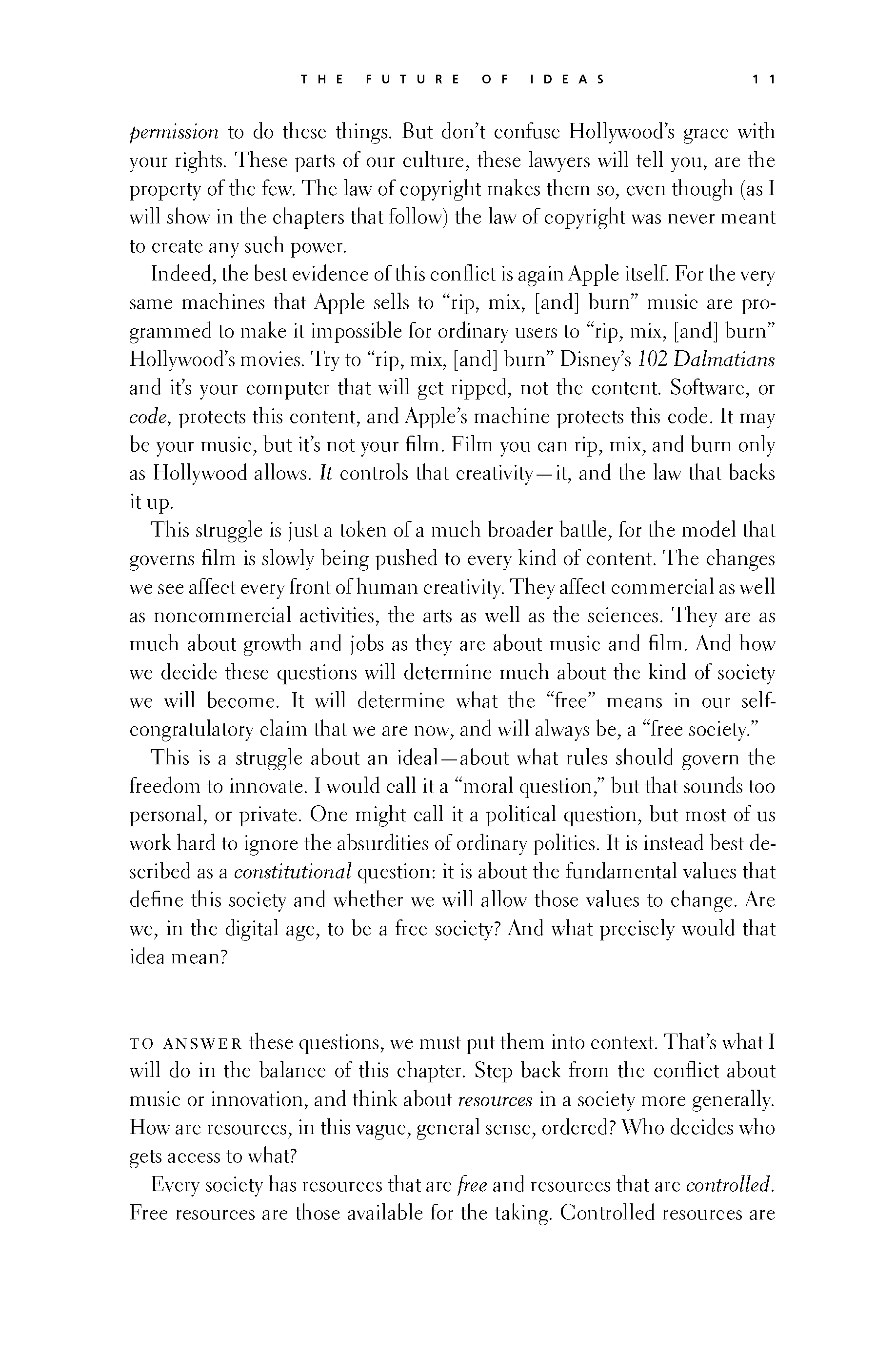 p010 _
-chap- _
toc-1 _
p011w _
toc-2 _
+chap+ _
p012
p010 _
-chap- _
toc-1 _
p011w _
toc-2 _
+chap+ _
p012
_permission_ to do these things. But don't confuse Hollywood's grace with
your rights. These parts of our culture, these lawyers will tell you, are the
property of the few. The law of copyright makes them so, even though (as I
will show in the chapters that follow) the law of copyright was never meant
to create any such power.
Indeed, the best evidence of this conflict is again Apple itself. For the very
same machines that Apple sells to "rip, mix, [and] burn" music are pro-
grammed to make it impossible for ordinary users to "rip, mix, [and] burn"
Hollywood's movies. Try to "rip, mix, [and] burn" Disney's _102_Dalmatians_
and it's your computer that will get ripped, not the content. Software, or
_code,_ protects this content, and Apple's machine protects this code. It may
be your music, but it's not your film. Film you can rip, mix, and burn only
as Hollywood allows. _It_ controls that creativity -- it, and the law that backs
it up.
This struggle is just a token of a much broader battle, for the model that
governs film is slowly being pushed to every kind of content. The changes
we see affect every front of human creativity. They affect commercial as well
as noncommercial activities, the arts as well as the sciences. They are as
much about growth and jobs as they are about music and film. And how
we decide these questions will determine much about the kind of society
we will become. It will determine what the "free" means in our self-
congratulatory claim that we are now, and will always be, a "free society."
This is a struggle about an ideal -- about what rules should govern the
freedom to innovate. I would call it a "moral question," but that sounds too
personal, or private. One might call it a political question, but most of us
work hard to ignore the absurdities of ordinary politics. It is instead best de-
scribed as a _constitutional_ question: it is about the fundamental values that
define this society and whether we will allow those values to change. Are
we, in the digital age, to be a free society? And what precisely would that
idea mean?
///\\\
To answer these questions, we must put them into context. That's what I
will do in the balance of this chapter. Step back from the conflict about
music or innovation, and think about _resources_ in a society more generally.
How are resources, in this vague, general sense, ordered? Who decides who
gets access to what?
Every society has resources that are _free_ and resources that are _controlled_.
Free resources are those available for the taking. Controlled resources are
[[11]]
p010 _
-chap- _
toc-1 _
p011w _
toc-2 _
+chap+ _
p012